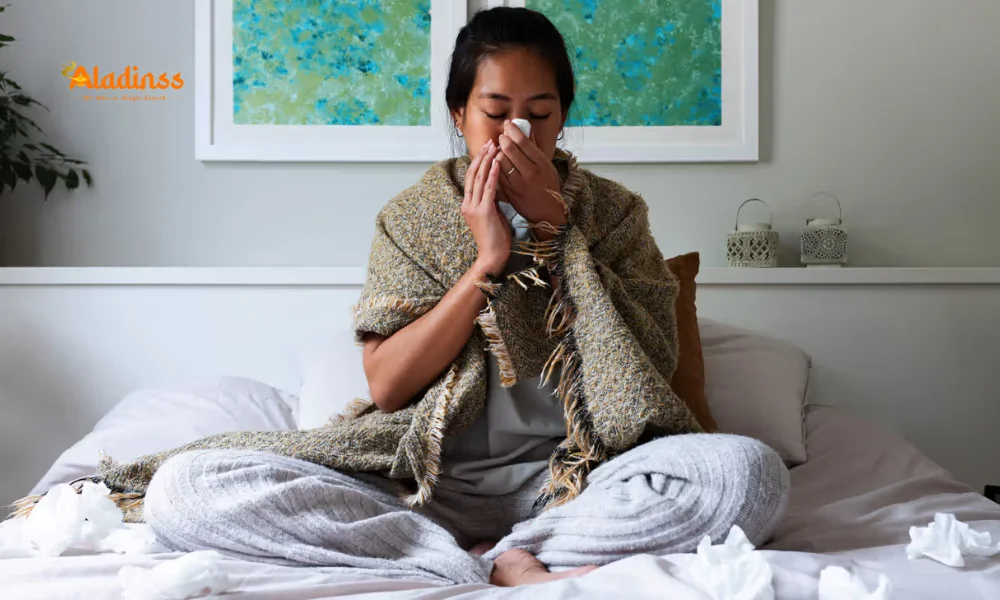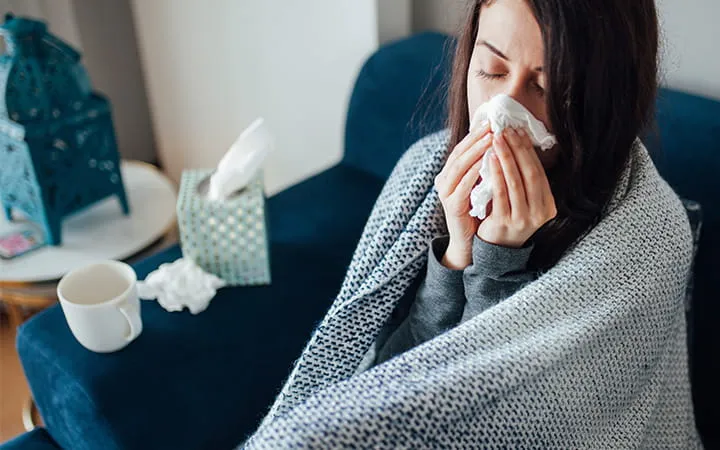Flu Season 2025: Essential Tips Doctors Recommend to Stay Safe

Flu Season Hits: Must-Know Symptoms and Survival Tips
As the flu season arrives in 2025, colder weather and holiday gatherings create a perfect storm for respiratory viruses. Public health expert Dr. Farooq Abdullah warns that seasonal infections, including the flu, are on the rise, with symptoms like fever, cough, and fatigue becoming common. While most cases resolve with rest and care, severe symptoms like shortness of breath or uncontrollable fever demand immediate medical attention. This guide explores how to survive flu season, critical symptoms to watch for, and precautions to prevent the spread of infections like swine flu, coronavirus, and dengue.
With schools closing for vacations and festive gatherings increasing, the risk of viral spread is heightened. Dr. Abdullah emphasizes the importance of hygiene, mask-wearing, and avoiding self-medication to protect vulnerable populations, including children and the elderly.

Understanding Seasonal Flu and Its Risks
The flu season, typically peaking during colder months, is driven by viruses that thrive in cooler, drier conditions. Dr. Farooq Abdullah explains that these viruses spread through respiratory droplets from coughing, sneezing, or touching contaminated surfaces. Common symptoms of seasonal flu include fever, runny or stuffy nose, sore throat, cough, body aches, and fatigue. For most healthy individuals, these symptoms subside within a few days with rest, hydration, and a balanced diet.
However, the flu season also brings risks from more dangerous viruses like swine flu and coronavirus, which can cause severe complications, especially in children, the elderly, or those with chronic conditions such as heart, kidney, or liver diseases. These groups are particularly vulnerable, and early intervention is critical to prevent serious outcomes.
Critical Flu Symptoms to Watch For
While mild flu symptoms can often be managed at home, certain red flags require immediate medical attention. Dr. Abdullah highlights the following symptoms that should not be ignored:
- Severe, uncontrollable fever
- Shortness of breath
- Dizziness when walking
- Extreme physical fatigue
- Inability to eat or loss of appetite
- Decreased urine volume
These symptoms indicate a potentially serious infection that may require hospitalization and intensive treatment. Ignoring them could lead to life-threatening complications, particularly for high-risk groups. Prompt medical consultation is essential to ensure timely care.
Dengue Fever: A Rainy Season Threat
In addition to respiratory viruses, the rainy season brings the risk of dengue fever, a mosquito-borne illness that peaks during monsoon months. Dengue is characterized by high fever for the first three days, often accompanied by eye pain, back pain, and severe joint pain. Dr. Abdullah warns that dengue can escalate quickly, with the following danger signs requiring immediate hospitalization:
- Inability to eat
- Decreased urine volume
- Bleeding gums
- Black stool
- Severe stomach pain
- Redness all over the body
Dengue fever poses a significant public health challenge, particularly in tropical regions. Preventive measures, such as eliminating mosquito breeding sites and using repellents, are crucial to reducing its spread during the rainy season.
How to Survive Flu Season: Expert Tips
Surviving flu season requires proactive measures to minimize infection risks and promote recovery. Dr. Abdullah offers the following advice to stay healthy:
- Practice good hygiene: Wash hands frequently and avoid touching surfaces with unwashed hands after coughing or sneezing.
- Wear a mask: Infected individuals should wear masks to prevent spreading the virus to others.
- Rest at home: If you have mild symptoms like fever or cough, stay home to avoid infecting others and aid recovery.
- Avoid self-medication: Consult a doctor instead of relying on over-the-counter drugs, which may mask serious symptoms.
- Maintain a healthy diet: Proper nutrition and hydration support the immune system and speed up recovery.
These steps not only protect individuals but also help curb the spread of infections in communities, particularly during festive gatherings and school vacations.
Protecting Vulnerable Populations
Children, the elderly, and individuals with chronic illnesses are at higher risk of severe complications from flu and other seasonal infections. Dr. Abdullah stresses the importance of extra precautions for these groups, including regular health check-ups and prompt reporting of symptoms. Caregivers should monitor for signs like shortness of breath or extreme fatigue, which could indicate a need for urgent medical intervention.
Vaccinations, such as the annual flu shot, can also reduce the severity of infections in high-risk groups. Consulting healthcare providers about vaccination schedules and preventive measures is a proactive step to ensure safety during flu season.
Preventing the Spread of Infections
The contagious nature of respiratory viruses makes prevention a community effort. Simple actions like covering the mouth during coughing or sneezing, disposing of tissues properly, and maintaining distance from others when sick can significantly reduce transmission. Dr. Abdullah emphasizes that wearing masks in crowded places, especially during festive events, is a practical way to protect both oneself and others.
Public awareness campaigns can further reinforce these habits, educating communities about the importance of hygiene and early medical consultation. Schools and workplaces should also implement protocols to minimize the spread of infections during peak flu season.
The Role of Healthcare Systems
Healthcare systems play a critical role in managing flu season challenges. Hospitals and clinics must be prepared to handle an influx of patients, particularly those with severe symptoms requiring intensive care. Dr. Abdullah advocates for increased access to testing and treatment for viruses like swine flu and coronavirus, ensuring timely diagnosis and management.
Strengthening healthcare infrastructure, including adequate staffing and resources, is essential to cope with seasonal outbreaks. Public health campaigns should also focus on educating people about when to seek medical help, reducing the burden on hospitals by encouraging home care for mild cases.
Dengue Prevention in the Rainy Season
Dengue fever, a significant concern during the rainy season, requires targeted prevention strategies. Eliminating standing water, using mosquito nets, and applying repellents are effective ways to reduce mosquito breeding and bites. Community-level efforts, such as fogging and clean-up drives, can further control the spread of dengue in high-risk areas.
Public health authorities should also raise awareness about dengue symptoms and ensure that healthcare facilities are equipped to handle severe cases. Early detection and treatment are critical to preventing fatalities and managing outbreaks effectively.
Preparing for a Healthy Festive Season
The festive season, with its gatherings and celebrations, increases the risk of infections. Dr. Abdullah recommends planning ahead by maintaining hygiene, avoiding crowded places when sick, and ensuring proper ventilation in indoor settings. Families should also stock up on essentials like masks, sanitizers, and over-the-counter remedies, but only use them under medical guidance.
By staying vigilant and following expert advice, individuals can enjoy the festive season while minimizing health risks. Community cooperation and adherence to public health guidelines are key to keeping infections at bay.
Comment / Reply From
No comments yet. Be the first to comment!






